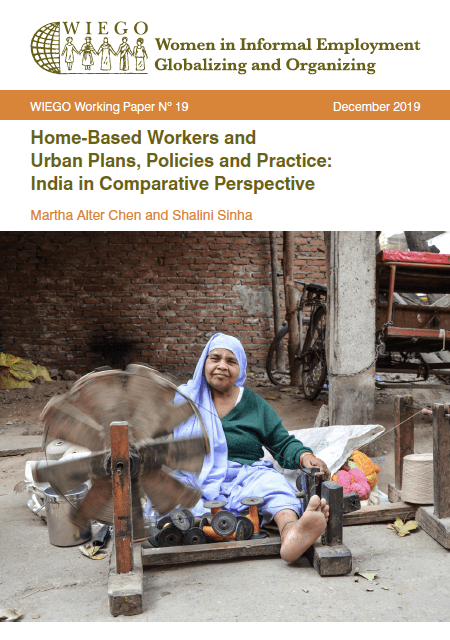Home-Based Workers and Urban Plans, Policies and Practice: India in Comparative Perspective
This paper explores the impact of local government policies and urban plans on home-based workers in India and elsewhere. It presents recent national data on the size and composition of home-based work in developing countries as well as findings from two recent field studies of urban home-based workers in several Asian cities/countries, including India. The research findings highlight that homes often double as workplaces, especially for women workers, and that slums are domains of significant economic activities. To address these twin facts and the demands of home-based workers, the paper makes the case that city governments and urban planners need to integrate home-based workers and their livelihood activities into local economic development plans, and that city governments need to extend basic infrastructure to the homes-cum-workplaces of home-based workers and transport services to the settlements where they live and work. The paper provides some promising examples of where and how this has been done, largely in response to effective advocacy by organizations of home-based workers.
View list of all: Working Papers

